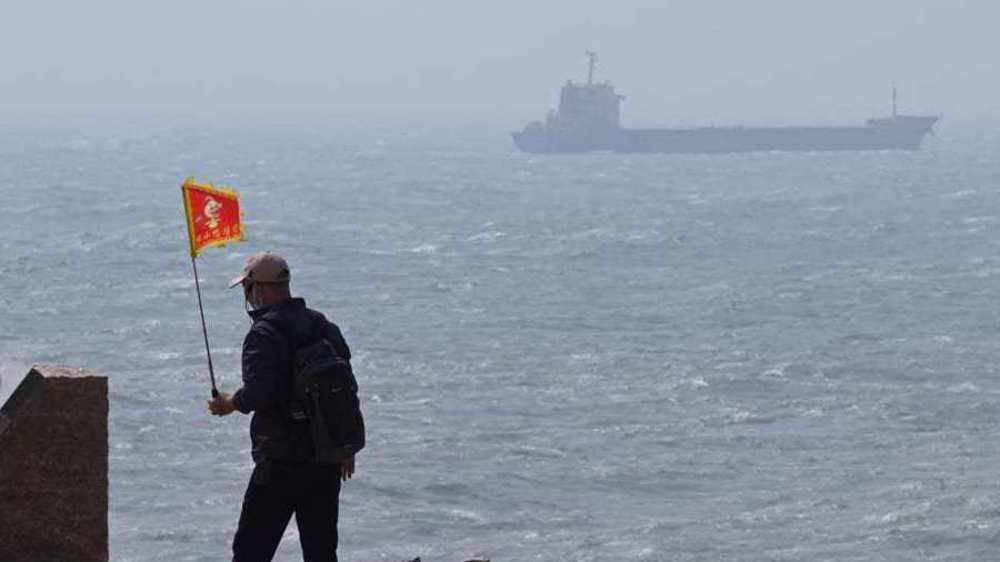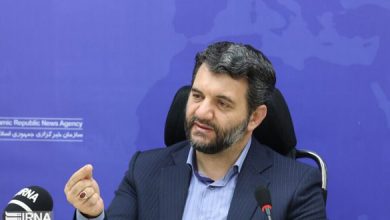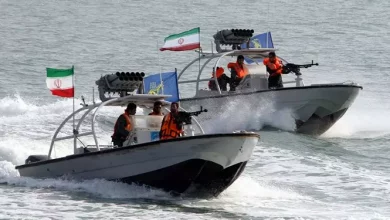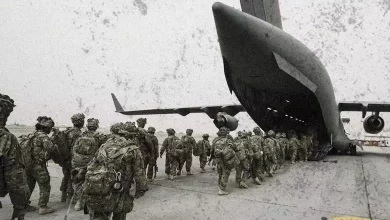N Korea warns of ‘thermonuclear war’, slams US deals with S Korea, Japan
North Korea has warned of a “thermonuclear war” as the potential outcome of recent trilateral deals reached at the US Camp David presidential retreat to further boost ties between Washington, Seoul and Tokyo while slamming huge annual war games between US and South Korean forces.
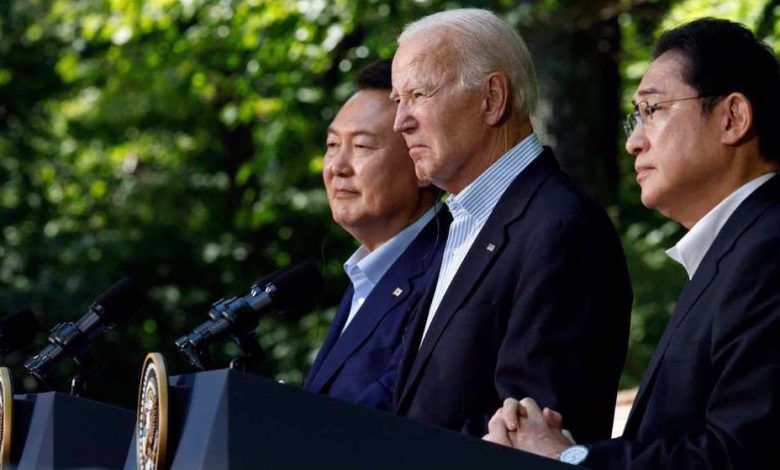
“If the agreements fabricated at the Camp David Resort are additionally put into practice in the war drill … the possibility of outbreak of a thermonuclear war on the Korean peninsula will become more realistic,” North Korea’s official Korea Central News Agency (KCNA) underlined in a commentary published on Tuesday.
It further emphasized that the first standalone summit between the top leaders of the US, South Korea and Japan on Friday was aimed at formulating a “nuclear war provocation” despite claims by the three allies that they were seeking to project unity against China’s growing power and Pyongyang’s nuclear threats.
The development came as the US and South Korea began on Monday their joint annual war game — dubbed Ulchi Freedom Shield – prompting Pyongyang’s condemnation of the move as a military rehearsal aimed at waging aggression against the North.
The commentary also pointed out that the prevailing situation requires North Korea’s military to “take the initiative, offensive and overwhelming action for a war,” without elaborating on details.
South Korean lawmakers, meanwhile, have claimed that Pyongyang could test-fire an intercontinental ballistic missile or take other military measures in response to the latest war games as well as the Camp David summit agreements.
Beijing protests Camp David’s anti-China statement
This is while China declared on Monday that it had lodged complaints over a joint statement issued following the Camp David summit in which top leaders of Washington, Seoul and Tokyo criticized what they claimed as Beijing’s “aggressive behavior.”
Reacting to the unprecedented summit, China on Monday blasted its joint statement, insisting that the three leaders had “smeared and attacked China on Taiwan-related and maritime issues, grossly interfered in China’s internal affairs and deliberately sowed discord between China and its neighbors.”
Beijing further voiced its “strong dissatisfaction and firm opposition and has lodged solemn representations with relevant parties,” China’s foreign ministry spokesperson Wang Wenbin asserted at a news briefing on Monday.
Wang also slammed the Camp David summit as an example of an “attempt to revive Cold War mentality by inciting division and confrontation represented by various closed and exclusive small circles.”
US President Joe Biden hosted the summit — described as launching a “new chapter” of close, three-way security cooperation with South Korea and Japan.
Camp David marks the first time the leaders of the United States, Japan and South Korea have met for a standalone summit, rather than on the sidelines of a larger event.
Biden praised the “political courage” of South Korean President Yoon Suk Yeol and Japanese Prime Minister Fumio Kishida in turning the page on historical animosity.
Such a summit would have been unthinkable until recently due to the legacy of Japan’s harsh 1910-1945 occupation of the Korean peninsula.
The three leaders agreed to a multi-year plan of regular exercises in all domains and made a formal “commitment to consult” during crises, with Biden saying they would open a hotline.
The three leaders also agreed to share real-time data on North Korea and to hold summits every year.
Meanwhile, China’s People’s Liberation Army began air and sea drills around Taiwan on Saturday in what it said was a “stern warning” after the island’s vice president visited the US.
“If relevant countries really care about peace and stability in the Taiwan Strait, they should abide by the One-China principle, stop condoning and supporting separatists advocating for Taiwan independence and their activities, and take concrete actions to safeguard regional peace and stability,” Wang further stressed on Monday.
“The Taiwan question is purely China’s internal affair,” he then pointed out. “Solving the Taiwan question is China’s own business.”
China has sovereignty over Taipei, and under the internationally-recognized “one-China” policy, nearly all countries recognize that sovereignty, meaning that they would not establish diplomatic contact with its secessionist government.
The US, too, professes adherence to the principle, but in violation of its own stated policy and in an attempt to irritate Beijing, Washington courts the secessionist government in Taipei, supports its anti-China position, and supplies it with massive amounts of armaments.
China describes Taiwan as the most sensitive and important issue in its relations with the US, and the topic remains a constant source of friction between Beijing and Washington.
Last August, China deployed warships, missiles, and fighter jets around Taiwan in its largest show of force in years, following a trip to the island by then US House Speaker Nancy Pelosi.
